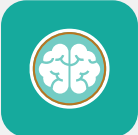Introduction to EPAD
The European Prevention of
Alzheimer’s Dementia
Consortium
There’s an urgent need to break new ground in the fight against Alzheimer’s dementia. The number of people affected worldwide is expected to reach over 100 million by 2050. Therefore, right now is a crucial time for the development of effective treatments.
We recruited over 2000 research participants into a four-year EPAD Longitudinal Cohort Study (LCS) exploring new ways to better understand the early stages of Alzheimer’s disease and prevent dementia before symptom onset.
The data, bio samples, and neuroimaging generated from our study are available for researchers studying the brain and neurodegenerative diseases around the world.

EPAD at AD/PD 2025: Advances in Science and Therapy
International Conference on Alzheimer’s and Parkinson’s Diseases and related neurological disorders | April 1-5, 2025 | Vienna, Austria|
Explore our Open Source Data and Samples
By making our data and samples publicly accessible, our goal is to facilitate global collaboration amongst brain scientists and researchers working in the field to improve the understanding of the early stages of Alzheimer’s disease and accelerate treatment options.

EPAD dataset
Thanks to an innovative screening process, the EPAD LCS dataset is unique, as 37% of the sample was amyloid positive at enrollment. Additional data includes information on biomarkers, cognition, sociodemographic, and vital signs.

Neuroimaging
The EPAD imaging dataset includes core (3D T1w, 3D FLAIR) and advanced (ASL, diffusion MRI, and resting-state fMRI) MRI sequences. Core Sequences were acquired for all participants while advanced sequences have been obtained from a subset of scanning sites, for around 70% of
participants.

Bio samples
The EPAD biobank includes blood, CSF, saliva, and urine collected over the course of our longitudinal study. Our bespoke database and information management system provides traceability and sample
validation.
Discover the latest EPAD news and publications.
News
-
EPAD at AD/PD2025
Read more: EPAD at AD/PD2025The AD/PD™ Alzheimer’s disease and Parkinson’s disease Conference took place between 1-5 April in Vienna, Austria. The conference presented all the latest breakthroughs in treatment, translational R&D, early diagnosis, drug…
Videos
-
The EPAD project
Read more: The EPAD project
Publication
-
Alzheimer’s & Dementia: Diagnosis, Assessment & Disease Monitoring
Read more: Alzheimer’s & Dementia: Diagnosis, Assessment & Disease Monitoring“Accrual of Alzheimer’s disease pathology as a function of proximity to parental dementia onset” Authors: Elina T. Ziukelis, Elijah Mak, Craig Ritchie, John T. O’Brien, Dag Aarsland, for the European Prevention of Alzheimer’s Disease (EPAD) Consortium Abstract: Introduction: Whether temporal proximity to parental onset of dementia (PPO) can be used to estimate timing of the preclinical stage of sporadic…
